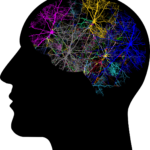Life Skills
Instructor: Gayle Meinkes-Lumia - gaylelumia@yahoo.com
In-Service Course - 3 Credits - 45 Hours
Course Description: Comprehending the ways in which students succeed is tantamount to all educators. Knowing the means to drive student mastery is critical. This course is designed to empower educators to reimagine and redesign their classrooms through impactful pedagogy. They will analyze proven strategies of learning and explore a wealth of resources that enable students to put together ideas in new ways and take risks while learning. Participants will learn the ways in which to effectively achieve the core in all subject matters, providing the utmost instruction to all learners.
*A must for K-12 educators* | $250.00$280.00 Max: Min: 1 Step: 1 Add to cart | |
3 credits/45 hours In service only Bryan Horrman bhorrmannliips@gmail.com Course Description: Have you ever asked yourself, “Which is more important, to have students learn the outcomes of previous reasoning or to have students learn the skills to conduct their own research?” Much of teaching that we do today is outcome based, which has manifested itself in multiple choice exams. While testing is important, there needs to be a balance by teaching students the process by which they arrive at answers. This class will explore the use of active learning inside of your classroom where students can be directly involved in their own education. Goal of the Course: The goal of this course to collaborate with other teachers and create a plethora of resources that can be used inside of the classroom. This course will help create a positive environment and encourage students to retain information in an active way. Learning Outcomes: • Opportunities to process course material through thinking, writing, talking, and problem solving give students multiple avenues for learning.
• Applying new knowledge helps students encode information, concepts, and skills in their memories by connecting it with prior information, organizing knowledge, and strengthening neural pathways
• Receiving frequent and immediate feedback helps students correct misconceptions and develop a deeper understanding of course material
• Working on activities helps create personal connections with the material, which increases students’ motivation to learn
• Regular interaction with the instructor and peers around shared activities and goals helps create a sense of community in the classroom
• Instructors may gain more insight into student thinking by observing and talking with students as they work
• Knowing how students understand the material helps instructors target their teaching in future lessons | $250.00$280.00 Max: Min: 1 Step: 1 Add to cart | |
(3 credits/45 hours)
Instructor: Randi Miller rmillerliips@gmail.com
Selective Mutism is an anxiety disorder which significantly affects social/pragmatic language skills, social interactions, relationships as well as school performance. This course will focus on the development of SM and co-existing conditions (such as social anxiety). It will provide a review of evidence based practices for those working with students in a school setting students with SM (or those who may display) characteristics of Selective Mutism.
Course objectives;
After completing the coursework, participants will:
Have knowledge of the diagnostic criteria and characteristics of SM and related disorders
Have a foundation of information to support a student with SM in and out of the classroom.
Be able to work with peers to support their classmate with SM
Create/share resources for parents and colleagues
This course is relevant to all who work in schools with children ages 5-21 in both regular and special education settings. This course has been designed for all school administrators, regular and special education teachers (grades K-12 and ages 5 to 21), special area teachers (gym, art, music, technology) school psychologists, school counselors, guidance counselors, social workers, speech and language therapists or speech pathologists and occupational or physical therapists. | $250.00$280.00 Max: Min: 1 Step: 1 Add to cart | |
Instructor: Randi Miller
Course Description:
School-wide and Classroom Practices is an integral component of Social-Emotional Learning (SEL) programs. A part of SEL is the process of helping educators build their expertise and skills to lead their schools social and emotional learning initiatives regardless of their role in the building/district. One of the many components of SEL is cultivating adults' own social and emotional competencies.
When educators embody the same practices that they hope to teach their students, the outcomes for learners are maximized. Developing school-wide engagement activities for SEL provides opportunities for staff and students to engage in team building and learning activities that focus on this common goal. The development and implementation of school-wide activities creates teachable moments while reinforcing the core SEL components.
This course is relevant to all who work in schools with children ages 5-21 in both regular and special education settings. This course has been designed for all school administrators, regular and special education teachers (grades K-12 and ages 5 to 21),special area teachers (gym, art, music, technology) school psychologists, school counselors, guidance counselors, social workers, speech and language therapists or speech pathologists and occupational or physical therapists | $250.00$280.00 Max: Min: 1 Step: 1 Add to cart | |
ON-LINE (3 credits/45 hours)
In-Service Credit only
Instructor: Malka Ismach, Ph.D. Email: Mismachliips@gmail.com
Course Description: In this course, we will learn the history, components, and theories of the science of psychology, a science like no other. We will study various theories and researchers as well as constructs and how each contributes to the field in its own way. We will study, analyze, and discuss human behavior, intelligence, conditions, motivations and more. We will learn how to apply all the components of psychology into educational settings of all kinds.
This course was developed for school administrators, regular and special education teachers (grades K-12 and ages 5 to 21), special area teachers, school psychologists, school counselors, guidance counselors, social workers, speech and language therapists and pathologists and occupational and physical therapists. | $250.00$280.00 Max: Min: 1 Step: 1 Add to cart | |
*New Course Instructor: Kim Kittredge kkittredgeliips@gmail.com 3 Credits In Service Course (45 Hours) Dates: Spring 2025 – June 2, 3, 4, 9, 10, 11, 12, 16, 17, 18. Course Description:This course is designed to discuss empathy and how we can build it together. Empathy will be defined and explored. Teachers will be given a multitude of tools to build empathy in the classroom and in the culture within the school. Educators will work towards sympathizing and building stronger relationships through empathy and empathetic strategies. Strategies such as “imagine self” and “imagine others” will be discussed. Educators will work on skills to deeply understand their students’ personal and social situations, and feel care and concern for them. Positive and negative emotions will be explored as well as proper communication, understanding and how to demonstrate empathy in the classroom and in your school. This course is a must for educators K-12. | $250.00$280.00 Max: Min: 1 Step: 1 Add to cart | |
*New Course Instructor: Kim Kittredge kkittredgeliips@gmail.com 3 Credits In Service Course (45 Hours) Dates: Summer 2025 - July 21st-25th Course Description: To use or not to use, that is the question!? This course will discuss the use of cell phones in the classroom and in schools. Educators will examine how cell phones can get in the way of learning and can be a daily distraction. We will also talk about how phones can help our students on a day-to-day basis. Teachers will discuss how phones can help our students with research or other areas of study if their laptops are not charged. Topics such as what it was like before cell phones were around will be discussed. This course is a must for all educators grades K-12. | $250.00$280.00 Max: Min: 1 Step: 1 Add to cart | |
*New Course*
Instructor: Kim Kittredge Kkittredgeliips@gmail.com
3 credits/45 hrs in service
Dates: January (2025) 7, 8, 9, 10, 14, 15, 16, 21, 22, 23.
We know as educators that we are here teach many ideals. Our knowledge of our subject area and proper classroom behavior are just to name a few. Character Education is one of these ideals that is a vital part of any student’s learning. Educators in this course will discuss theories on how to teach your students to be the best that they can be. Educators will discuss methods to helping your students become more respectful and responsible individuals. Character education will provide students with models for maintaining integrity and becoming well-adjusted people. Using some of these character theories learned in this course, you will feel proud to know that your students will be going out into the world a more well-rounded and responsible member of society. This course is a must for educators grades K-12. | $250.00$280.00 Max: Min: 1 Step: 1 Add to cart | |
(3 credits/45 hours) In service credit only
Instructor: Joanie Deignan jdeignanliips@gmail.com
Summary: Cooperative games in physical education can benefit the comradery of physical education classes. To be able to teach your class how to work together like a team prior to other units can help them reach full potential as a group and make the most out of your physical education class. Cooperative play helps kids hone their social skills as they figure out how to negotiate group dynamics. It helps them learn how to collaborate and compromise with others, recognize and respond to others' feelings, share, show affection, resolve conflicts, and follow and cooperate with gymnasium and game rules. | $250.00$280.00 Max: Min: 1 Step: 1 Add to cart | |
Course Description: Journaling has always been a way to express your thoughts and get your ideas out. It has also been a way to milestone important events, record everyday happenings, or just let out your innermost feelings. As educators, we have the opportunity to use journaling to our benefit on a daily basis. In this course, educators will discuss the importance of journaling and the benefits of journaling in all subject areas. We will discuss how to begin a daily journaling routine for both students and teachers. This routine can work for all students and educators and can be used as an emotional tool. Journaling can be used to treat anxiety, depression, and help affect us in many positive ways. Educators will discuss a variety of strategies from the fact “that there’s no right way to journal”, to “how to keep on journaling.” Teachers will discuss the benefits of handwritten journaling vs. digital journaling. Strategies such free writing, timed writing and the 1-minute journal strategy will be explored. Participants will receive a series of journal prompts, ideas and samples to be used for any subject areas and to model in their classrooms. This course is a must for all educators of all subjects and grade levels K-12.
Instructor: Kim Kittredge
kkittredgeliips@gmail.com
3 credits – In service Course (45 Hours) | $250.00$280.00 Max: Min: 1 Step: 1 Add to cart | |
Instructor: Gayle Meinkes-Lumia – gaylelumia@yahoo.com
In-Service Course – 3 Credits – 45 Hours
Course Description: Activating social awareness in students is tantamount. Encouraging exploration of varying perspectives and creating an atmosphere of critical thinking paves the path for student success. This course will instruct participants on the ways in which engagement can enhance their already existing curriculum. The course will focus on student needs, meaningful discussions, exploration of viewpoints, dialectic journals, critical analysis, visionary components, etc..
*A must for K-12 educators* | $250.00$280.00 Max: Min: 1 Step: 1 Add to cart | |
*New Course
Instructor: Gayle Meinkes-Lumia – gaylelumia@yahoo.com
In-Service Class – 3 Credits – 45 Hours
Dates: June 2,3,4,5,6,9,10,11,12,13th (2025)
East Meadow Location – 4:15 - 8:15 pm
Course Description:
The importance of continual growth in one’s classroom cannot be emphasized enough. Creating expectations for students and creative assignments teeming with energy is the key to their successful mindset. This course will discuss the ways in which learners guide their students’ growth mindset and excitement to grow. Teachers will read a wealth of articles in this course that stress refinement and reflection. They will hone in on student productivity and the ways to create a work environment filled with spice. Technological activities and components of every discipline will be covered. In the end, the learning will never end.
*A Must for K-12 Educators* | $250.00$280.00 Max: Min: 1 Step: 1 Add to cart | |
*New Course Instructor: Kim Kittredge kkittredgeliips@gmail.com 3 Credits In Service Course (45 Hours) Dates: Summer 2025 – August 11th-15th Course Description: Using creative writing in all subjects will provide our students with the capacity to better read, research, reflect and more. Educators will discuss interdisciplinary writing rules, the 7 different types of writing, creative writing assignments and how to better reflect as we write. Educators will work on strategies for structuring creative writing no matter what the subject. Activities will also be shared for how to strengthen the writing of all students in all areas. A plethora of creative writing prompts will be shared for all subjects and areas of teaching. By the end of this course students will learn how to open their minds, be imaginative and work towards the goal of clarity, completeness and creativity. This course is a must for all educators grades K-12. | $250.00$280.00 Max: Min: 1 Step: 1 Add to cart | |
Instructor: Gayle Meinkes-Lumia – gaylelumia@yahoo.com
In-Service Course – 3 Credits – 45 Hours
Course Description: Classroom dialogue provides a unique opportunity for students to verbalize their understanding, bring their thoughts to the surface and examine mindsets. By engaging in dialogue, students can identify knowledge gaps, challenge assumptions, and solidify their comprehension, all with the assistance of their peers. Participants in this course will learn how to engage their students in effective dialogue through an open exchange of perspectives, all of which deepen students' understanding of topics and encourage reflection. Reflective journals, democratic dialogue, and Socratic seminars will all be included in the course!
*A must for K-12 educators!* | $250.00$280.00 Max: Min: 1 Step: 1 Add to cart | |
Instructor: Gayle Meinkes-Lumia – gaylelumia@yahoo.com
In-Service Course – 3 Credits – 45 Hours
Course Description: Creating strategies for and utilizing our gregarious students' sociality within the confines of the classroom is an art form. This course will enable participants to comprehend the behaviors behind their most loquacious individuals and harness their individual strengths. Finding the means to allow learners to enthusiastically express their ideas and feel comfortable in their skin is akin to good teaching. A wealth of ideas and strategies will be presented for teachers to immediately utilize in their classes!
*A must for K-12 educators* | $250.00$280.00 Max: Min: 1 Step: 1 Add to cart | |
Instructor: Christina Palmenteri
In service only. 3 credits/45 hours
Course Description:
A comprehensive online course designed to equip educators and coaches with the tools to create positive, inclusive, and skill-building sports environments for young athletes. Participants will explore key strategies in developing age-appropriate training, fostering teamwork, enhancing communication, and addressing the unique needs of youth players. This course provides practical insights and strategies to promote physical, social, and emotional growth in young athletes while meeting educational standards for continued professional development.
* Suitable for all Educators K-12 | $250.00$280.00 Max: Min: 1 Step: 1 Add to cart | |
Instructor: Gayle Meinkes-Lumia – gaylelumia@yahoo.com
In-Service Course – 3 Credits – 45 Hours
Course Description: Facilitating the means for students to become leaders and succeed significantly in any classroom must be the role of all teachers. Acknowledging student strengths, providing ownership, encouraging their potentialities, all falls within the confines of the course. Participants will learn to create a vision for their students, empower them through effective coaching and feedback, and guide them with training, tools, and time. A wealth of strategies will be rendered and the means for implementing them full addressed.
*A must for K-12 educators* | $250.00$280.00 Max: Min: 1 Step: 1 Add to cart | |
*New Course*
Instructor: Kim Kittredge Kkittredgeliips@gmail.com
3 credits/45 hrs in service
Dates: February Break (2025) - Feb. 17th-21st
As educators we are confronted with all different issues with our students. School anxiety is an issue that can affect any child at any age. We may be confronted with school anxiety when our students ask to frequently leave the room to go to the nurse or to go to the bathroom. But in more severe cases, our students may not come to school at all. These students unfortunately just can’t even make it into the building due to their severe school anxiety. In this course educators will receive an overview of what school anxiety is and how to recognize it. Teachers will be armed with theories on how this anxiety manifests itself in general, and will be given strategies on how to deal with their students. Strategies will also be shared for dealing with Absenteeism and how to help catch up your students who may be falling behind due to their anxiety. This course is a must for educators grades K-12. | $250.00$280.00 Max: Min: 1 Step: 1 Add to cart | |
Instructor: Gayle Meinkes-Lumia – gaylelumia@yahoo.com
In-service Course – 3 Credits / 45 Hours
Course Description: Creating a positive school environment begins with developing and implementing stellar character education, beginning with lessons on morality, responsibility, respect, peer to peer interactions. This course will enable teachers to glean the ways in which to infuse the ideas of moral understanding, psychological literature, and scientific methodology into their everyday encounters with students. Modeling and community outreach suggestions will intertwine with the course material to create a superb character education program for our students.
*A must for K-12 educators* | $250.00$280.00 Max: Min: 1 Step: 1 Add to cart | |
*New Course Instructor: Kim Kittredge kkittredgeliips@gmail.com 3 Credits In Service Course (45 Hours) Dates: Summer 2025 - August 18th – 22nd Course Description: Connecting literature and reading to the daily lives of our students is a tremendous task. Educators who take this course will work on text connections, human connections and deeply engaging with text. Teachers will work on literary activities such as theme, literary devices, figurative language, plot, quotations and characterization just to name a few. Activities and strategies will be shared on uses of literary symbols and connections to text and our students’ lives. Symbolism through art and literature will also be discussed. Learning how to teach these symbolic and artistic connections and continue to engage our students will lead them to a more effective and positive future. This course is a must for all educators of all grades K-12. | $250.00$280.00 Max: Min: 1 Step: 1 Add to cart | |
3 credits/45 hours) in-service credit only
Instructor: Dr. Christopher Korolczuk
Email: DrK.lips@gmail.com
Course Description: This course offers a comprehensive view on tackling the mental health crisis in public schools, highlighting the importance of balancing emotional safety with resilience, addressing digital distractions, and navigating the complexities of social media and self-perception. It underscores the effects of COVID-19 on students, emphasizing the need for reconnection and support post-isolation. Further, it delves into the rise of medication for mental health issues among children, advocating for mindfulness and alternative strategies. The analysis of increasing anxiety and depression, the rethinking of ADHD approaches, and the role of parental boundaries in child development are crucial for understanding the multifaceted nature of students' mental health challenges. Lastly, the discussion on engaging yet rigorous education offers insights into maintaining students' interest without compromising academic standards.
For school personnel, learning about these topics is vital post-COVID-19, as it equips them with the tools to support students' mental well-being and adapt to the changing educational landscape, ensuring a holistic approach to student development and learning.
NEW! This self-paced course uses an online learning platform called Canvas. All videos, reading materials, and assignments can be found in one online location. Also, you can simply type your assignments into the website and hit the "submit." button. This new feature makes the course easier to navigate and more user-friendly than other courses. | $250.00$280.00 Max: Min: 1 Step: 1 Add to cart | |
Giving Students More Authority – Facilitating Meaningful Classroom Discussions in the K-12 Classroom PDLI 9130 (45 HOURS/3 GRADUATE CREDITS) Instructor: Gayle Meinkes-Lumia – gaylelumia@yahoo.comCourse Description: Providing students with high quality discussions that promote learning and engagement is tantamount to teaching. High quality discussions include content-specific ideas that spark students to express different points of view, reflect on their own opinions, varying perspectives, and engage in democratic dialogues. Education that develops deep reasoning, critical thinking, and conceptual and practical tools for inculcating knowledge is tantamount for students today. Teaching in this modality empowers our learners and enables them to recognize that proactive engagement is the key to their success. In this course, participants will be instructed on the pedagogical principles that promote student learning and democratic engagement. They will learn the ways in which students themselves facilitate learning and streamline their own thinking. Teachers will be instructed on ways in which to act as mediators and not sages, including the ins and outs of effective questioning. Rich discussion tactics will be integrated as fishbowl techniques, Socratic Seminars, Jigsaws, formative assessments, graphic organizers, gallery walks – all of which engage the learner and provide for optimum efficacy. Goals and Objectives: Upon completion of the course, participants will be better prepared to: • Understand the impact of effective classroom discussions
• Comprehend the respective ways in which teachers can transform their classrooms via classroom dialogues
• Generate meaningful strategies that challenge students
• Develop deep learning outcomes for their classrooms
• Integrate a myriad of learning activities that challenge their learners
• Engage their learners with 21st century tools of instruction | $600.00 Max: Min: 1 Step: 1 Add to cart | |
Giving Students Voice: Teaching them to Debate, Discuss and Argue with Authority and Power *New Course* Dates: Spring 2025 – March 3, 4, 5, 6, 10, 11, 12, 13, 18, 19.In our society today student need to be taught how to use their voice more than ever. This course will provide educators with ways to add more discussion and debating in the classroom. Teachers will also work on creating better opportunities for students to converse and discuss. Students will also be exposed to written arguments, as well as evaluating the debate skills of others. Students will eventually learn how to teach debate, discussion, and argumentative skills. Educators will emerge from this course with a plethora of skills on all aspects of voice, debate and discussion in their classrooms. Once students feel the power of their voice, they will realize the authority it gives them. This course is a must for educators K-12. Instructor: Kim Kittredge kkittredgeliips@gmail.com 3 Credits In Service Course (45 Hours) | $250.00$280.00 Max: Min: 1 Step: 1 Add to cart | |
*New Course Instructor: Gayle Meinkes-Lumia- gaylelumia@yahoo.com Summer 2025 Dates – July 14th-July 18th Course Credits- 3 Credits/45 Hours Course Description: The hallmark of high achieving students is the power of grit. Possessing this ability to persevere despite any adversity is something that needs to be instructed to our learners. Participants will learn how to recharge their students through commitment, long-term goal reaching, cultivation of ideas, passion for the disciplines they study, and inner dedication to themselves. A myriad of strategies will be discussed to unlock the mindset of their students, including small passages from historical freedom fighters, analysis of the grit characteristics, and remedies for facing challenges and obstacles. *A Must for K-12 Educators* | $250.00$280.00 Max: Min: 1 Step: 1 Add to cart | |
*New Course Instructor: Gayle Meinkes-Lumia- gaylelumia@yahoo.com Summer 2025 Dates – August 4th-August 8th Course Credits- 3 Credits/45 Hours Course Description: High academic achievement can create more opportunities for students indefinitely. The study skills, social skills, knowledge, and problem-solving abilities that students learn at school will support them throughout their entire lives. This course will cover the practical and effective ways to boost students’ academic achievement, as well as the ways in which to develop students’ missions, goals, and core strategies of learning. Participants will delve into the most efficacious ways to instruct their students, including problem-based instruction, differentiated modalities, technological sources, as well as many other creative modalities. *A Must for K-12 Educators* | $250.00$280.00 Max: Min: 1 Step: 1 Add to cart | |
Credits: (3 credits/45 hours) in-service credit only
Instructor: Dr. Christopher Korolczuk Email: DrK.liips@gmail.com
Course Description:
Do you find it challenging to help students navigate the complex, volatile, and emotionally charged events of our world? Are you unsure how to guide them in understanding the truth, processing their emotions, and responding thoughtfully to global issues?
This professional development course is designed to equip educators with the tools and strategies needed to support students in analyzing current events critically and empathetically. Participants will explore topics such as media literacy, historical context, emotional resilience, cultural perspectives, and civic engagement. The asynchronous format allows teachers to learn at their own pace, making it a practical option for their busy schedules. Topics include identifying credible sources, managing classroom discussions, addressing bias, fostering hope, and promoting advocacy.
By the end of this course, educators will be prepared to create safe, thoughtful, and engaging learning environments where students can explore challenging topics with confidence and empathy, developing skills that will serve them throughout their lives.
NEW! This self-paced course uses an online learning platform called Canvas. All videos, reading materials, and assignments can be found in one online location. Also, you can simply type your assignments into the website and hit the "submit." button. This new feature makes the course easier to navigate and more user-friendly than other courses.
The course consists of three main components:
1. Asynchronous Learning: Navigate through the course's content at your own pace on the online platform. The main topics for this engaging course include:
| $250.00$280.00 Max: Min: 1 Step: 1 Add to cart | |
3 Credits – In service Course (45 Hours)
Instructor: Kim Kittredge kkittredgeliips@gmail.com
Course Description: As educators, joy is something we strive to have in our classrooms daily. When we feel happiness, we must embrace it and welcome it. When we lose that feeling we yearn to have it back. This course will help educators grasp on to those joyful moments with students and continue to keep our classroom positive all year long. Teachers will delve into joyful lessons, fun-filled activities and hands-on experiences that will keep that feeling of comfort in our classroom positive and satisfying. This course will delve deep into how to rebuild relationships with students, brush off unhelpful criticism, and how to recharge for health and wellness. Educators will build lessons on how to get your students outside more in nature and for daily exercise boosts. Participants will also learn techniques for incorporating art, music, and journaling in creative and positive ways. All with the common goal of resetting and reigniting joy and happiness and bringing it back to your classroom. This course is a must for all educators of all grade levels and subjects K-12. | $250.00$280.00 Max: Min: 1 Step: 1 Add to cart | |
Kim Kittredge Kkittredgeliips@gmail.com The challenging student will always be in your classroom, and teachers will always be looking for a way to deal with them. In this course educators will be given strategies on how to deal with their most challenging students on a day-to-day basis. Educators will be taught various skills on conquering behavioral challenges in and out of their classrooms. Skills such as behavior interventions and management, behavior support, how to properly implement an IEP will be discussed. Teachers will also learn the importance of social skills, modeling techniques, effective praise in the classroom and the importance of developing proper daily routines. Educators will also work on how to support and sustain proper relationships with parents of behavioral students. This course is a must for all educators of all grades K-12. | $250.00$280.00 Max: Min: 1 Step: 1 Add to cart | |
3 Credits – In service Course (45 Hours)
Instructor: Kim Kittredge kkittredgeliips@gmail.com
Course Description: Icebreakers, Do-Now and Wrap Ups are the heart of a great lesson. As educators, we strive to bring the lesson in with a bang, get the kids thinking and focusing, and then, if successful, wrap it all up. Participants in this course will explore strategies and techniques for fabulous brain games and icebreakers that can be used for any subject and grade level. Educators will work on building do nows with purpose and power to get lessons going. Teachers will also learn the art of wrapping up any lesson with such strategies as creative closures, exit tickets, summaries and reflections. As teachers we are always trying to find the best way to get our students in and out of lessons with ease, and this course will be a toolbox of activities to guide you along the way. This course is a must for all educators of all grade levels and subjects K-12. | $250.00$280.00 Max: Min: 1 Step: 1 Add to cart | |
Kim Kittredge Kkittredgeliips@gmail.com How can teachers increase rigor and productivity in the classroom? This course is designed to arm educators with a multitude of skills to increase rigor and make your students become the motivated individuals you wish them to be. Participants in the course will be given a multitude of materials and strategies to help their students become more productive. Through hands-on activities, group work, SEL learning, computer-based games and technology and differentiated instruction to name a few, your students will thrive. Students who didn't think they had it in them will break the barriers and understand that rigor is not “hard” it’s just a tiny bit uncomfortable; but the benefits are powerful! This course is a must for all educators of all grades K-12. | $250.00$280.00 Max: Min: 1 Step: 1 Add to cart |
























